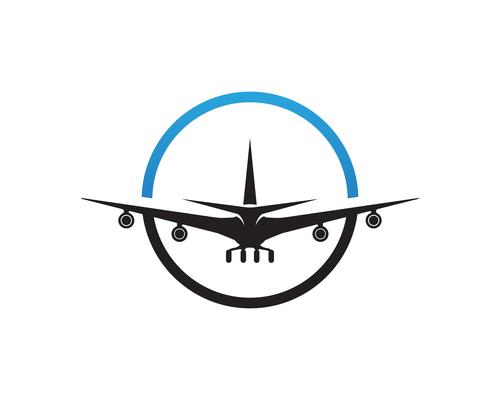Singapore, known for its vibrant economy, multicultural society, and stunning skyline, is a popular destination for tourists, business travelers, and expatriates. As a nation that welcomes a diverse range of visitors, Singapore has specific visa regulations that vary depending on the purpose of the visit and the visitor’s nationality. This article provides an overview of the different visa types, application processes, and regulations surrounding entry into Singapore.
Types of Visas

Tourist Visa
A tourist visa allows visitors to stay in Singapore for leisure purposes. Nationals from many countries, including the United States, the European Union, and Australia, can enter Singapore visa-free for short stays (ranging from 30 to 90 days depending on the country). However, travelers from countries like India, China, and certain Middle Eastern nations may require a visa.
Business Visa
Individuals traveling to Singapore for business purposes need a business visa. This category includes attending conferences, meetings, or negotiations.
Employment Pass
Applicants must have a job offer from a Singaporean employer, possess relevant qualifications, and meet the minimum salary threshold.
S Pass
The S Pass is designed for mid-skilled workers who meet specific criteria, including educational qualifications and a minimum monthly salary. Employers must apply on behalf of the employee.
Dependent Pass
Family members of Employment Pass and S Pass holders can apply for a Dependent Pass to reside in Singapore. This pass allows dependents to live in Singapore but does not automatically grant them the right to work.
Student Pass
International students wishing to study in Singapore must apply for a Student Pass.
Transit Visa
Passengers transiting through Singapore to another destination may require a transit visa if they plan to leave the airport transit area. Nationals of certain countries may be exempt from this requirement.

Visa Application Process
Determine Visa Type
Before applying, individuals should determine which visa type they need based on their purpose of travel.
Gather Required Documents
The documentation required varies by visa type but generally includes:
- A valid passport with at least six months of validity
- Completed application form
- Passport-sized photographs
- Proof of travel (flight itinerary)
- Proof of accommodation
- Financial statements (to show sufficient funds)
- For work-related visas: employment letter and qualifications
Submit Application
Applications can be submitted online through the Immigration and Checkpoints Authority (ICA) website or in person at Singaporean embassies or consulates. For certain work visas, employers may need to submit applications through the Ministry of Manpower (MOM).
Pay Fees
Visa application fees vary depending on the visa type and can typically be paid online.
Wait for Processing
Processing times vary; tourist visas may take a few days, while work visas could take longer.
Receive Visa Approval
Once approved, the visa will be issued electronically. Visitors should print a copy of their visa to present upon arrival in Singapore.
Important Regulations to Note
Entry Requirements:
In addition to a visa, travelers may need to meet certain health and safety regulations, especially in light of the COVID-19 pandemic. This may include presenting proof of vaccination or undergoing health screenings.
Overstay Penalties:
Overstaying a visa in Singapore can result in fines, imprisonment, or bans on future entry. Visitors should be aware of their visa validity and ensure they leave the country on or before their visa expiration date.
Change of Status:
Travelers who wish to change their visa status while in Singapore must apply for the new visa before their current visa expires.
Visa Extensions:
In certain cases, visitors may apply for an extension of their stay in Singapore.
Restrictions on Employment:
Holders of tourist visas are not permitted to work in Singapore. Only individuals holding specific work passes may engage in employment.
Conclusion
Navigating Singapore’s visa regulations can seem complex, but understanding the different types of visas and the application process can simplify the journey. As a global hub for business and tourism, Singapore continues to welcome visitors from all around the world while maintaining strict regulatory frameworks to ensure safety and compliance. For the most current information, it is advisable to consult the official website of the Immigration and Checkpoints Authority (ICA) of Singapore or contact the nearest Singaporean diplomatic mission. visit: Immigration & Checkpoints Authority (ICA)

This guide on Understanding Singapore Visa Regulations is intended for informational purposes only and should not be considered legal advice. Visa regulations can change frequently, and individual circumstances may vary.
Get Free Expert Advice: Are you ready to embark on your next adventure? Whether you’re seeking a work permit, tourist visa, or study opportunities in Canada or other countries, we’re here to help! Contact us today to learn how our expert services can simplify your journey and turn your dreams into reality. Reach out now and let’s start planning your future together!
- Canada Citizenship Requirements: Everything You Need to Know
- Canada’s Global Passport Ranking: What It Means for Travelers
- Canada vs. Australia: Which Country is Your Perfect Fit for Immigration in 2024?
Also read:
- Best Country to Study Abroad for Indian Students for Free – Why Germany Leads the World
- UK Study Visa Approved Without IELTS – Even After a 5-Year Study Gap!
- 10 Most Budget-Friendly Countries for Indian Students to Study Abroad
- Discover the Best Time to Visit Canada: A Complete Guide for Your Dream Adventure
- Navigating Post-Study Work Opportunities & Tuition Fees: A New Era for International Students in the UK, US, Canada, and Europe
 Need expert Advise ?
Need expert Advise ?
